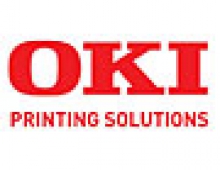
Progress cited in MPEG-4 Visual Standard patent talks
The 19 companies that currently stake claims to essential MPEG-4 Visual Standard patents are edging closer to creating a joint patent license that will allow for one-stop legal licensing, the company facilitating the joint patent license said this week.
MPEG LA, LLC, the company helping to negotiate the license, said that the joint patent license could be in place by January, with licensing available shortly thereafter. The group holding the patents, which calls itself M4VisualPHG, is eager to get the joint patent license hammered out in hopes of quickly spreading the technology, saying that a one-stop license will enable widespread implementation and interoperability for the open-standard technology.
"Our goal is to make this technology ubiquitous," said Lawrence Horn, MPEG LA vice president of licensing and business development and M4VisualPHG spokesman.
Although M4VisualPHG is keen on spreading the technology, negotiating a joint license among so many patent holders is a slow process.
"There's a lot of pressure to get the license out," Horn said, "and it's still going to take all our effort to get it out by January 2002."
While vendors can still gain lawful access to MPEG-4 by negotiating licenses with each patent holder, that would be a formidable task, he said.
The group hopes that the joint license will fuel the spread of the open-standard technology, and is inviting any other party that believes it has essential patents to MPEG-4 to submit them to an evaluator for inclusion in the joint license.
Given that open-standard technology calls for more and more interoperability across product standards, the industry is likely to see more joint patents in the future, Horn said: "Sometimes it takes a lot of patents to get something to work."
"Our goal is to make this technology ubiquitous," said Lawrence Horn, MPEG LA vice president of licensing and business development and M4VisualPHG spokesman.
Although M4VisualPHG is keen on spreading the technology, negotiating a joint license among so many patent holders is a slow process.
"There's a lot of pressure to get the license out," Horn said, "and it's still going to take all our effort to get it out by January 2002."
While vendors can still gain lawful access to MPEG-4 by negotiating licenses with each patent holder, that would be a formidable task, he said.
The group hopes that the joint license will fuel the spread of the open-standard technology, and is inviting any other party that believes it has essential patents to MPEG-4 to submit them to an evaluator for inclusion in the joint license.
Given that open-standard technology calls for more and more interoperability across product standards, the industry is likely to see more joint patents in the future, Horn said: "Sometimes it takes a lot of patents to get something to work."

















